|
 Secure Site
Secure Site
|
 |
Archive for the 'Japanese Inspired Zen Clocks' Category
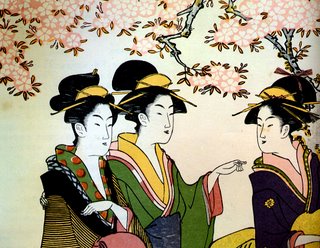 Courtesan Hanaogi of Ogi-ya by Chokosai Eisho, Now & Zen ukiyo-e detail Japanese poets first encountered Chinese Poetry when it was at its peak in the Tang Dynasty. It took them several hundred years to digest the foreign impact, make it a part of their culture and merge it with their literary tradition in their mother tongue, and begin to develop the diversity of their native poetry. For example, in the Tale of Genji both kinds of poetry are frequently mentioned.
A new trend came in the middle of the 19th century. Since then the major forms of Japanese poetry have been tanka (new name for waka), haiku and shi.
In Japan during the ancient times, it was a custom between two writers to exchange waka instead of letters in prose. In particular, it was common between lovers. Soon after in Japan, making and reciting waka became a part of aristocratic culture.
wikipedia.org
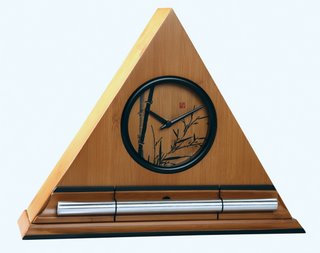 Bamboo Zen Clocks, progressive chime clock and timer Now & Zen Headquarters
1638 Pearl Street
Boulder, CO 80302
(800) 779-6383
Posted in Cherry Blossoms, Japanese Inspired Zen Clocks, Japanese Poetry, Meditation Timers, Meditation Tools, Natural Awakening, Now & Zen Alarm Clocks, Progressive Awakening, Zen Timers
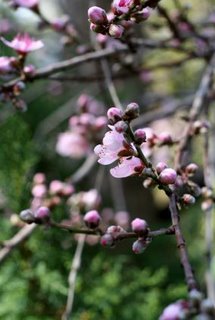 Pink Sakura, Now & Zen Inc. A cherry blossom is the name for the flower of cherry trees known as Sakura in Japanese.
Cherry blossom is an omen of good fortune and is also an emblem of love, affection and represents spring. Cherry blossoms are an enduring metaphor for the fleeting nature of life, and as such are frequently depicted in art.
Cherry blossoms and leaves are edible and both are used as food ingredients in Japan.
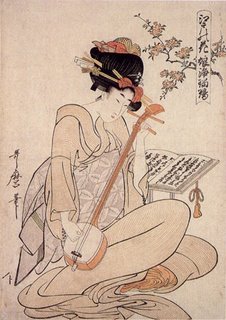 Kitagawa Utamaro Cherry Blossom Flowers of Edo, Now & Zen wikipedia.org
Now & Zen
1638 Pearl St.
Boulder, CO 80302
Posted in Japanese Inspired Zen Clocks, Meditation Timers, Meditation Tools, Natural Awakening, Now & Zen Alarm Clocks, Progressive Awakening, Zen Timers
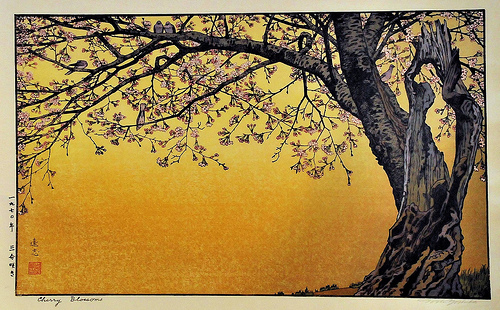 Ukiyo-e Toshi Yoshida Sanbu Zaki Cherry Blossoms In Japan cherry blossoms symbolize clouds due to their nature of blooming en masse, besides being an enduring metaphor for the ephemeral nature of life, an aspect of Japanese cultural tradition that is often associated with Buddhistic influence.
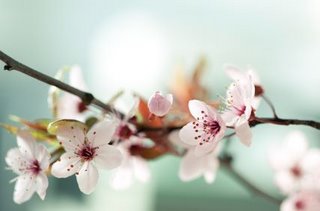 cherry blossoms like clouds The transience of the blossoms, the extreme beauty and quick death, has often been associated with mortality; for this reason, cherry blossoms are richly symbolic, and have been utilized often in Japanese art and film, as well as at musical performances for ambient effect.
from wikipedia.org
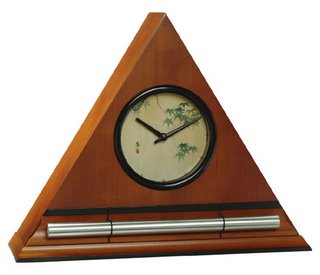 Zen Clocks by Now & Zen, Boulder, CO
Now & Zen Headquarters
1638 Pearl Street
Boulder, CO 80302
(800) 779-6383
Posted in Chime Alarm Clocks, Japanese Inspired Zen Clocks, Meditation Timers, Now & Zen Alarm Clocks, Progressive Awakening
...the art of the ‘tea ceremony’ inspired by Japan continued…
 Zen Timepiece, a timer for the 'way of tea' ceremony In that the Japanese tea ceremony is conventionally conducted sitting on tatami, seiza is integral to it. Unless it is the ryūrei style of tea ceremony, which employs chairs and tables, both the host and guests sit in seiza throughout.
To sit seiza-style, one first kneels on the floor, folding one’s legs underneath one’s thighs, while resting the buttocks on the heels. The ankles are turned outward as the tops of the feet are lowered so that, in a slight “V” shape, the tops of the feet are flat on the floor and big toes are overlapped, and the buttocks are finally lowered all the way down. Depending on the circumstances, the hands are folded modestly in the lap, or are placed palm down on the upper thighs with the fingers close together, or are placed on the floor next to the hips, with the knuckles rounded and touching the floor. The back is kept straight, though not unnaturally stiff. Traditionally, women sit with the knees together while men separate them slightly.
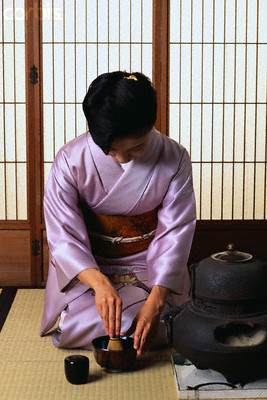 Japanese woman performing tea ceremony in seiza sitting position Stepping into and out of seiza is mindfully performed. There are codified traditional methods of entering and exiting the sitting position depending on occasion and type of clothing worn.
All the bows (there are three basic variations, differing mainly in depth of bow and position of the hands) performed during tea ceremony originate in the seiza position.
from wikipedia.org
Posted in Japanese Inspired Zen Clocks, Meditation Timers, Meditation Tools, Now & Zen Alarm Clocks, Progressive Awakening
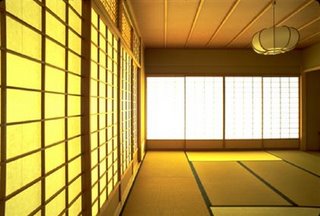 tatami-floored tea room for tea ceremony ...the art of ‘way of tea’ inspired by Japan…
By the 16th century, tea drinking had spread to all levels of society in Japan.
Almost any place where implements for the making and serving of the tea can be set out, and where the host can make the tea in the presence of the seated guest(s), can be used as a venue for tea.
A tatami-floored room with adjacent mizuya space for the host to conduct preparations of the various items to be used is required for a full chaji.
Many schools of Japanese tea ceremony have evolved through the long history of chadō and are active today.
from wikipedia.org
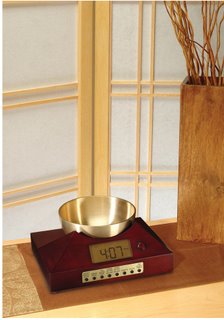 Zen Timepiece, a chime alarm clock and timer in cherry finish Now & Zen Headquarters
1638 Pearl Street
Boulder, CO 80302
(800) 779-6383
Posted in Chime Alarm Clocks, Japanese Inspired Zen Clocks, Meditation Tools, Natural Awakening, Now & Zen Alarm Clocks, Tea Ceremony, wabi-sabi, Zen Timepiece by Now & Zen, Zen Timers
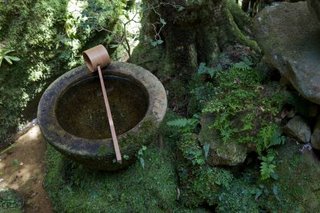 wabi-sabi tea ceremony The tea ceremony in Japan developed as a “transformative practice”, and began to evolve its own aesthetic, in particular that of wabi. Wabi, meaning quiet or sober refinement, or subdued taste, “is characterized by humility, restraint, simplicity, naturalism, profundity, imperfection, and asymmetry [emphasizing] simple, unadorned objects and architectural space, and [celebrating] the mellow beauty that time and care impart to materials.” (see now & zen blogs on wabi-sabi, March 2010.)
wikipedia.org
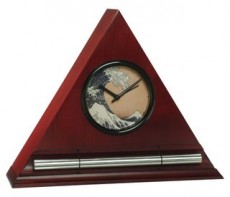 Zen Alarm Clock, Ukiyo-e Hokusai Wave Dial Face Now & Zen
1638 Pearl Street
Boulder, CO 80302
(800) 779-6383
Posted in Japanese Inspired Zen Clocks, Tea Ceremony, Zen Timers
 ukiyo-e woodblock print: traditional tea ceremony in kimono by master Utagawa Toyokuni Seasonality and the changing of the seasons are important in the tea ceremony from Japan. Traditionally the year is divided by tea practitioners into two main seasons: the sunken hearth season, constituting the colder months (traditionally November to April), and the brazier season, constituting the warmer months (traditionally May to October). For each season, there are variations in the temae performed and utensils and other equipment used.
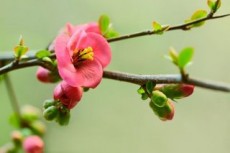 cherry blossoms wikipedia.org
Now & Zen Headquarter Store
1638 Pearl Street
Boulder, CO 80302
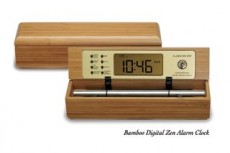 Bamboo Zen Clock and Timers
Posted in Japanese Inspired Zen Clocks, Now & Zen Alarm Clocks, Tea Ceremony, wabi-sabi, Zen Timers
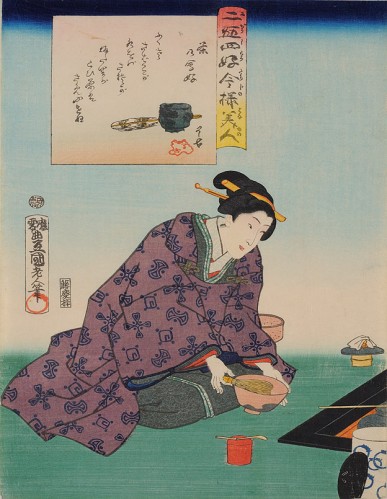 Utagawa Kunisada (1786-1865), a woman performing the tea ceremony The Japanese tea ceremony, also called the Way of Tea, is a Japanese cultural activity involving the ceremonial preparation and presentation of matcha, powdered green tea.
Many of the movements and components of tea ceremony from Japan, evolved from the wearing of kimono and, although it is not uncommon for students nowadays to wear western clothes for practice, most will practice in kimono at least some of the time, for this is essential to learn the prescribed motions properly.
wikipedia.org
 Zen Timer for tea ceremony, black laquer "E" tone digital version Now & Zen
1638 Pearl Street
Boulder, CO 80302
(800) 779-6383
Posted in Chime Alarm Clocks, Japanese Inspired Zen Clocks, Meditation Timers, Now & Zen Alarm Clocks, Tea Ceremony
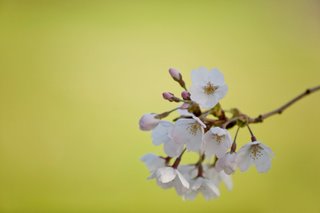 wabi sabi, the beauty of imperfection …a continuing admiration of wabi-sabi from Japan…
Wabi-sabi represents a comprehensive Japanese world view or aesthetic centered on the acceptance of transience.
Characteristics of the wabi-sabi aesthetic include asymmetry, asperity, simplicity, modesty, intimacy, and the suggestion of natural processes.
from wikipedia.org
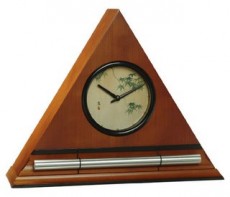 Zen Alarm Clock in Honey Finish Now & Zen Headquarter Store
1638 Pearl Street
Boulder, CO 80302
(800) 779-6383
Posted in Japanese Inspired Zen Clocks
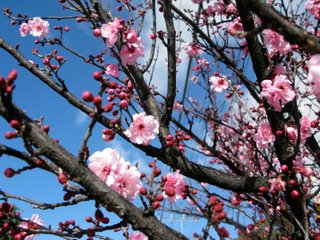 wabi-sabi: the beauty of imperfection …a continuing appreciation of wabi-sabi from Japanese culture…
The words wabi and sabi do not translate easily. Wabi connotes rustic simplicity, freshness or quietness, and can be applied to both natural and human-made objects, or understated elegance. It can also refer to quirks and anomalies arising from the process of construction, which add uniqueness and elegance to the object. Sabi is beauty or serenity that comes with age, when the life of the object and its impermanence are evidenced in its patina and wear, or in any visible repairs.
from wikipedia.org
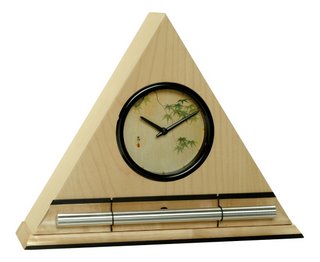 - Zen Alarm Clock in Maple Finish
Now & Zen Headquarters
1638 Pearl Street
Boulder, CO 80302
(800) 779-6383
Posted in Japanese Inspired Zen Clocks
« Previous Page — « Previous Entries
Next Entries » — Next Page »
|
|
|
|